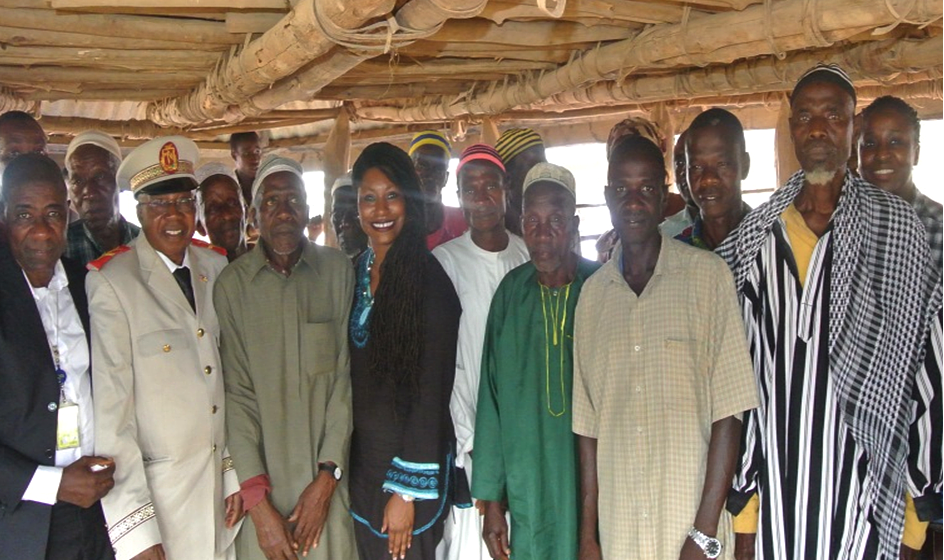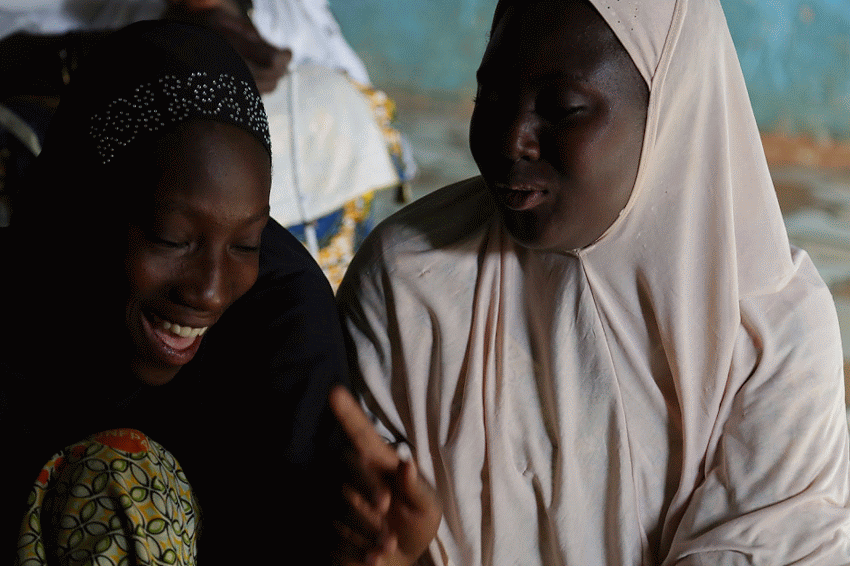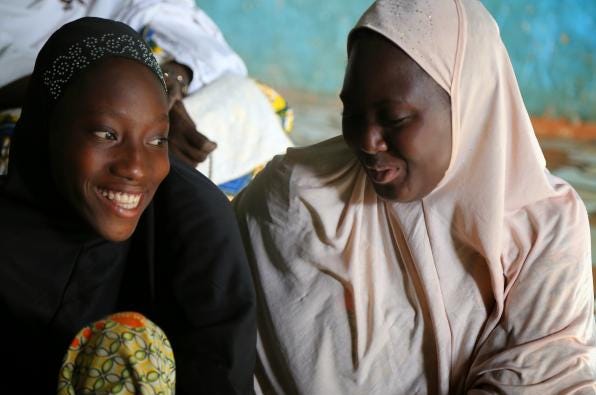Gossip & Statecraft, Beauty Pageant Diplomacy & Women's Work
Plus: On International Women's Day, disrupting the narrative about 'Child Brides'
There’s something to be said for the whisper network. Bored housewives clucking with their friends and PTA Moms with their laminated phone trees are mocked or derided, but gossip is not just idle talk. It can be an actively powerful tool in society, particularly to bring about change when traditional avenues seem closed. And for women in many parts of the world who have so little agency of their own, gossip is often their only way out of bad situations.
Trading secrets, by another name, is after all a key component of statecraft
“It was because I was a female and because this is a gender-segregated society that I was able to find out about her secret and have discrete conversations with her where she felt comfortable sharing.“
The organizers of the Miss Guinea competition thought Melinda Crowley would make the perfect judge — not only was she herself a woman but she was an American woman. Obviously, she’d know all about beauty pageants! Well, yes on the first count — Melinda did make the perfect judge — and not so much on the second — she was not nearly as familiar than the U.S. pageant circuit as might, perhaps legitimately, be assumed.
Guinea had been at the initial epicenter of the 2014 Ebola outbreak. Melinda, at the time a political officer with U.S. Embassy in Conakry, had been on the ground working to combat the crisis. But she’d also glimpsed an opening to tackle another, more entrenched and insidious outbreak, female genital mutilation. At that time, 97 percent of women and girls in the country had been cut. And the real risks of contamination, which could wipe out entire villages, provided an opportunity to begin an open dialogue about the cultural tradition.

This was not condescending to an entire country or swooping in with an America-knows-best cosmetic fix. Melinda planted a seed for ground-up engagement, which would only resonate and be amplified by the buy-in and ownership of Guinean society at large, as well as civil, political and religious leaders.
Back to the Miss Guinea competition. Melinda connected with the woman who would go on to be crowned the winner. After Melinda shared what she had been working on, the young woman confided that she had not been cut (a rare occurrence at that time). “Here you are considered the most beautiful woman in the country and normally, being cut is equated with being beautiful. Imagine what you can do with that,” Melinda told her. And after thoughtful consultation with her family, who supported her engagement, Miss Guinea — as Melinda told me — “started another movement.” And it became big.
I share this story not because it has a happy ending or a feel-good “happy-women’s-day!” message. Rather, this is a story about work. A story about women’s work. A story about women working with women and women working with men. These tangible and significant policy movements don’t happen — and they certainly don’t last — without Melinda — a Black woman — joining the Foreign Service and representing America in Guinea; seeing and then seizing an opportunity beyond her job description; connecting with the women and the men; and handing the keys to a beauty pageant winner (no less overlooked by most in the United States as the title holder would be in Guinea).
“As Miss Guinea, she was in uncharted territory; and as a diplomat, I often found myself in uncharted territory, too. We had that in common. That made her feel comfortable to open up, and she just soared.”
Become a paid subscriber today in order to read the entire of the conversation.
Disrupting the Narrative: Child Brides
From the archives in 2014:
Occasionally, I'll imagine a journalist from one of the countries where I've worked touching down in Washington and asking me to invite her into my home, sit with my family and open up to her about my life's greatest heartbreaks and struggles. During those moments of reflection, the privilege of sharing someone else's story has felt overwhelming and, occasionally, immobilizing. The mutual trust that must exist between me and the person who is making herself vulnerable is heavy. And for good reason. As we know, with the responsibility, comes the power (and the privilege).
I think often about the juxtaposition of the photos I'm sharing here of Haoua and Samira. I think about the difference between deciding to run the "joyful" photos or the "despondent" ones. I took each shot within a few minutes, sometimes even seconds, of the each other. The "sad"/"distant" ones fit the narrative.
Over the course of several days, these two girls shared some of the most intimate moments of their lives with me, stories that fell under a "subject" I was reporting on: child marriage. The "subjects" and "sources" shared some of the most sensitive and complex experiences of their lives. Haoua, Samira, and Samira’s mother, Salmou, before them, married very, very young. That decision — made by others on each of their behalves — has had many repercussions. Those marriages have shaped and are shaping their lives. There's a story there. A larger story. And then there are their stories.
What I never want to be obscured is this: these women have many stories to tell. Not the least of which is their deep sisterhood, their roles as caretakers and guardians, and their self-determination. I'm grateful too for the heaviness and the reckoning, for every single opportunity to do better, to challenge my assumptions and take moments like this one to reflect on the privilege of sharing their stories.










